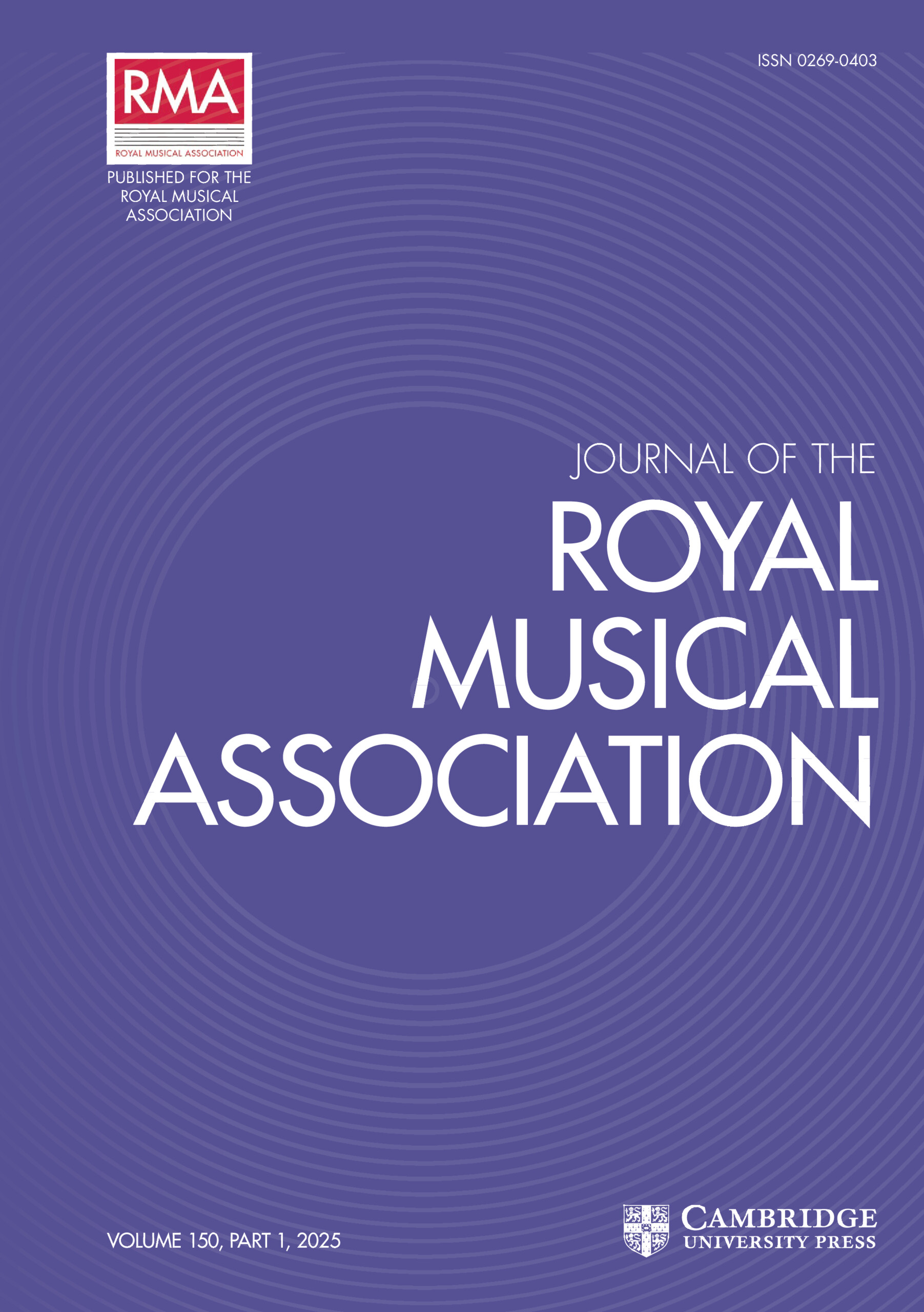No CrossRef data available.
Article contents
Listening to the Other: A Counter-Cultural Ear in iPodic Times
Response to Bernd Wannenwetsch
Published online by Cambridge University Press: 01 January 2020
Abstract
This response aims to widen the implications suggested by Bernd Wannenwetsch by exploring how music may promote a listening that breaks out of a monad-like subject.
- Type
- Research Article
- Information
- Journal of the Royal Musical Association , Volume 135 , Issue S1: Listening: Interdisciplinary Perspectives , 2010 , pp. 103 - 108
- Copyright
- Copyright © The Royal Musical Association
References
1 Carolyn Abbate, In Search of Opera (Princeton, NJ, 2001), 1–54. Also see Daniel K. L. Chua, ‘Untimely Reflections on Operatic Echoes: How Sound Travels in Monteverdi's L'Orfeo and Beethoven's Fidelio with a Short Instrumental Interlude’, Opera Quarterly, 21 (2005), 573–96.
2 See Daniel K. L. Chua, Absolute Music and the Construction of Meaning (Cambridge, 1999), 191–8.
3 In his Einleitung in die Musiksoziologie: Zwölf theoretische Vorlesungen (Frankfurt am Main, 1962), trans. E. B. Ashton as Introduction to the Sociology of Music (New York, 1976), Theodor W. Adorno writes: ‘The relation of works of art to society is comparable to Leibniz's monad. Windowless – that is to say, without being conscious of society, and in any event without being constantly and necessarily accompanied by this consciousness – the works of art, and notably of music which is far removed from concepts, represent society’ (p. 211).
4 For example, Edmund Husserl, in Cartesian Meditations: An Introduction to Phenomenology, trans. Dorian Cairns (The Hague, 1973), famously describes the self as an isolated monad, but notes that in Leibniz's thought each monad mirrors all other monads, implying that monads can empathize with each other (p. 150). Emmanuel Lévinas, however, argues that this kind of solipsism, which he regards as ‘the structure of reason’, merely reduces the Other to a reflection of the ego; see Emmanuel Lévinas, Time and the Other, trans Richard A. Cohen (Pittsburgh, PA, 1987), 65–6. For a more detailed exploration of this issue see Daniel K. L. Chua, ‘Beethoven's Other Humanism’, Journal of the American Musicological Society, 62 (2009), 571–645.
5 Ephesians v. 21; Romans xii. 10. See also Philippians ii. 1–11.
6 Emmanuel Lévinas, ‘Diachrony and Representation’, Entre-Nous: On Thinking of the Other, trans. Michael B. Smith and Barbara Harshav (New York, 1993), 159–60. The italics in ‘representation’ are added.
7 Emmanuel Lévinas, Alterity and Transcendence, trans. Michael B. Smith (London, 1999), 104.
8 Theodor W. Adorno, Beethoven: The Philosophy of Music, ed. Rolf Tiedemann, trans. Edmund Jephcott (Cambridge, 1998), 164.
9 Maurice Merleau-Ponty, ‘Eye and Mind’, The Merleau-Ponty Aesthetics Reader: Philosophy and Painting, ed. Galen Johnson (Evanston, IL, 1993), 121–49 (p. 132).
10 Emmanuel Lévinas, Totality and Infinity, trans. Alphonso Lingis (Pittsburgh, PA, 1969), 23, 78, 23. Also see Lévinas's critique of ‘seeing’ in ‘Diachrony and Representation’.
11 Jean-Luc Marion, Being Given: Toward a Phenomenology of Givenness, trans. Jeffrey L. Kosky (Stanford, CA, 2002). This phrase is repeated several times on pp. 323–4 with minor changes; the quotation here is a composite one.
12 Cited from Mauro Carbone, The Thinking of the Sensible: Merleau-Ponty's A-Philosophy (Evanston, IL, 2004), xvi.
13 Maurice Merleau-Ponty, Nature: Course Notes from the Collège de France, trans. Robert Vallier (Evanston, IL, 2003), 173–4; quoted Cited from Mauro Carbone, The Thinking of the Sensible: Merleau-Ponty's A-Philosophy (Evanston, IL, 2004), xv.
14 Scott Burnham, Beethoven Hero (Princeton, NJ, 1995), 162–8.




